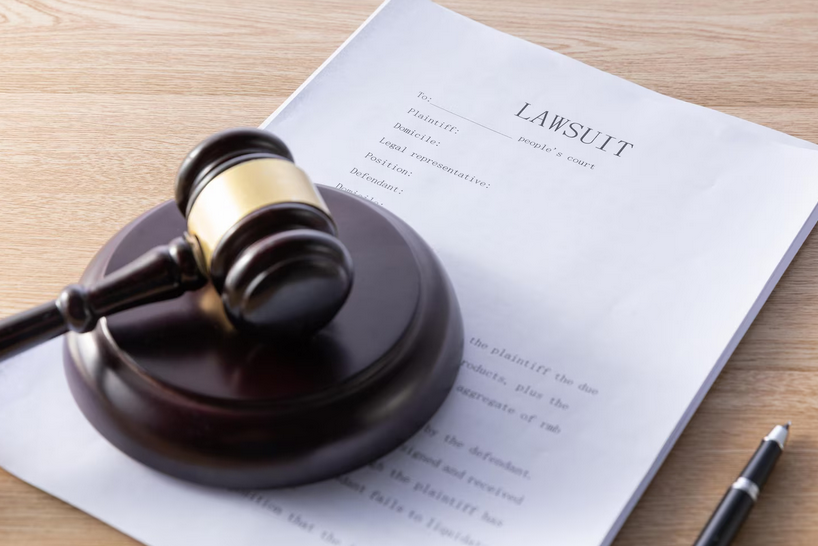How Class Action Lawsuits Are Shaping Corporate Accountability in 2025
Class action lawsuits have long been a tool for individuals to collectively stand up against powerful entities, but in 2025, they’re doing more than just compensating victims—they’re actively transforming how corporations behave. As companies become more global and digital, the legal frameworks that govern them are being tested, and class actions are emerging as a key force in enforcing transparency, ethics, and responsibility. Here’s how these lawsuits are influencing corporate accountability in the modern world.
Raising the Stakes for Corporate Misconduct
In 2025, class action lawsuits are sending a clear message: misconduct comes at a price. With increased regulatory scrutiny and more efficient legal pathways, corporations are facing steeper financial consequences for unethical practices. Lawsuits related to data privacy breaches, environmental violations, and product safety issues are leading to multi-million-dollar settlements—and sometimes even policy overhauls. In response, many companies are investing heavily in compliance to avoid becoming the next headline.
Empowering Consumers Through Collective Legal Action
One of the most important aspects of class action lawsuits is their ability to give voice to ordinary people. These lawsuits bring together individuals who might otherwise lack the means to take on a major corporation alone. For example, legal professionals like Tom Goodhead have become well-known advocates for consumer rights, championing high-profile class actions that not only compensate affected individuals but also push corporations to acknowledge and correct systemic issues. This legal empowerment is shifting the balance of power, making consumer voices harder to ignore.
Global Impact and Cross-Border Accountability

In today’s interconnected world, many companies operate across borders—so it makes sense that class actions are starting to reflect that reality. Multinational lawsuits are becoming increasingly common, particularly in cases involving global supply chains, environmental damage, and human rights violations. Courts in the UK, EU, and Australia are increasingly open to hearing claims against parent companies for the actions of their overseas subsidiaries. This global reach means corporations can no longer hide behind jurisdictional loopholes to escape responsibility.
Corporate Culture Is Shifting From Reaction to Prevention
Rather than waiting to be sued, forward-thinking companies are beginning to prioritize preventative measures. In-house legal teams are working closely with ethics officers and compliance departments to identify risk areas before they become legal liabilities. Transparency, whistleblower protection, and third-party audits are becoming standard practice. The threat of class action lawsuits is acting as a catalyst, encouraging companies to proactively foster ethical cultures instead of reacting to crises after the damage is done.
Technology Is Making Class Actions Faster and Smarter
Technology is transforming the legal landscape, and class actions are benefiting from this evolution. From AI-powered claim processing to blockchain-backed evidence management, legal teams can now organize complex cases more efficiently than ever before. Platforms that connect potential plaintiffs and manage case updates in real-time are also making it easier for individuals to participate. As these tools continue to evolve, class action lawsuits are becoming more accessible, streamlined, and effective in holding companies accountable.
Class action lawsuits in 2025 aren’t just about justice after the fact—they’re helping to redefine the expectations placed on corporations before problems arise. With growing public awareness, stronger legal frameworks, and more tech-savvy law practices, the corporate world is being held to higher standards. Whether it’s safeguarding consumer data or ensuring fair labor practices, companies are realizing that accountability is no longer optional—it’s expected.…




 The first step in filing a lawsuit against a contractor is to gather the necessary paperwork. You will need to get a summons and complaint form from your local courthouse. These forms can also be found online. Once you have the forms, you will need to fill them out and file them with the court. If you are not sure how to fill out the forms, you can ask for help from the court clerk.
The first step in filing a lawsuit against a contractor is to gather the necessary paperwork. You will need to get a summons and complaint form from your local courthouse. These forms can also be found online. Once you have the forms, you will need to fill them out and file them with the court. If you are not sure how to fill out the forms, you can ask for help from the court clerk. After completing the forms, you will need to file them with the court. You can either mail them or bring them in person to the courthouse. Be sure to keep a copy of the forms and the contract for your records. If you are filing the lawsuit yourself, you will need to pay a filing fee. The fee amount will vary depending on your state and the type of case you are filing.
After completing the forms, you will need to file them with the court. You can either mail them or bring them in person to the courthouse. Be sure to keep a copy of the forms and the contract for your records. If you are filing the lawsuit yourself, you will need to pay a filing fee. The fee amount will vary depending on your state and the type of case you are filing. Finally, if the contractor breaches the contract or causes significant damage to your home, you may need to seek legal counsel. An experienced lawyer can help you navigate the legal system and protect your rights.
Finally, if the contractor breaches the contract or causes significant damage to your home, you may need to seek legal counsel. An experienced lawyer can help you navigate the legal system and protect your rights.